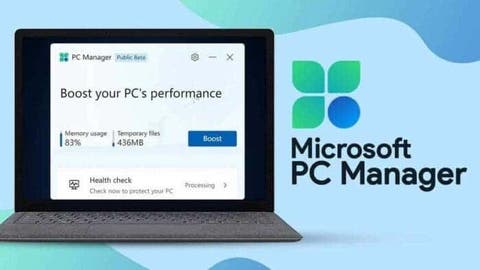A recent update to the Windows 11 Beta channel (build 22635.3646) has introduced PC Manager as a default app for users in China. While this app is already available for download through the Microsoft Store, its inclusion within the operating system itself hints at Microsoft’s potential plans for wider integration.
PC Manager belongs to a category of software known as system optimizers, similar to Razer Cortex Game Booster. These programs usually clean temporary files, free up unused memory, and identify large or redundant files for deletion. Microsoft claims PC Manager can also “reduce ads and app pop-up interruptions,” which many users may appreciate.
However, PC Manager’s inclusion in Windows 11 has sparked controversy. Neowin researchers found the app integrates affiliate links with tracking elements, connecting to Chinese utilities for Microsoft Word and PowerPoint. Reddit users report PC Manager resetting the Edge browser’s default search engine to Bing, a tactic Microsoft has used before.
Microsoft’s PC Manager in Windows 11: A Balancing Act Between Utility and Intrusion
Such behavior, particularly the embedded affiliate links and search engine manipulation, is more commonly associated with freeware downloaded from untrusted sources. The presence of these features within an official Microsoft app distributed through the company’s own store raises concerns about transparency and user trust. Further adding to these concerns are recent user experiences. After a Windows Update, some users found PC Manager was uninstalled and unavailable on the Microsoft Store. Reports also mention persistent pop-up notifications prompting users to relaunch the app even after uninstalling it.
PC Manager is currently in Beta and only available in China. Microsoft’s global testing hints at wider implementation. This raises the question of its future as a standard app for all Windows 11 users.
Microsoft’s system optimizer could protect users from harmful third-party apps. A reliable option from Microsoft is a positive development in a market full of dubious software.
However, the concerns regarding affiliate links, search engine manipulation, and intrusive user experience raise questions about Microsoft’s motives. If PC Manager becomes a tool for promoting Bing, Edge, and potentially other affiliate services, then its potential benefits in terms of system optimization may be outweighed by its intrusive nature.
Ultimately, the value proposition of PC Manager hinges on Microsoft striking a balance. The app can be a valuable addition to Windows 11 if it prioritizes user experience, transparency, and system optimization over intrusive marketing tactics. Only time will tell if Microsoft can navigate these complexities and deliver a solution that genuinely benefits its users.
